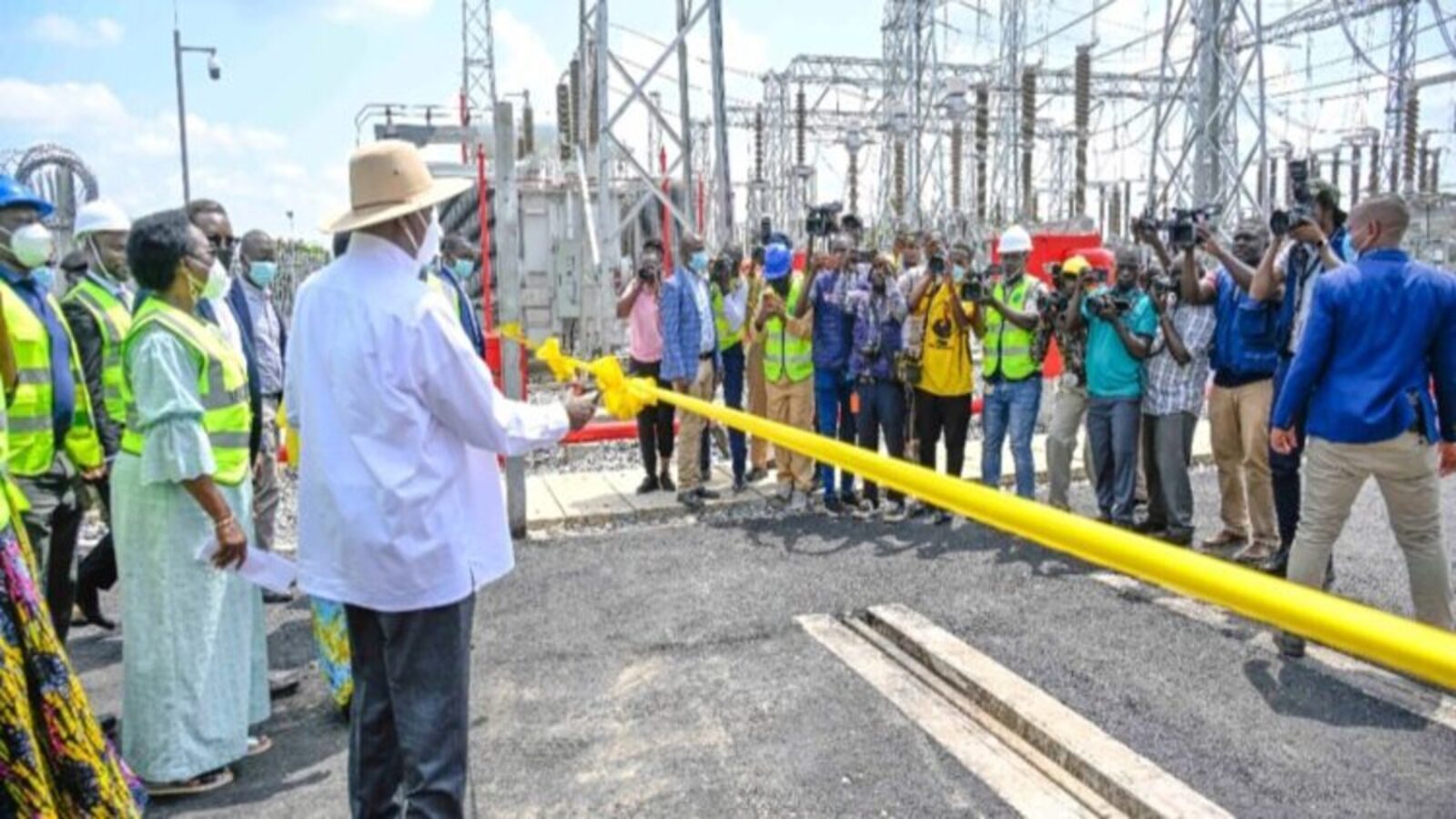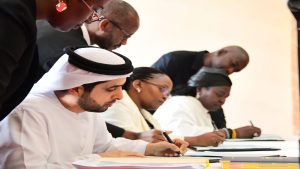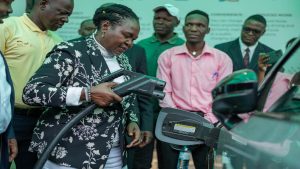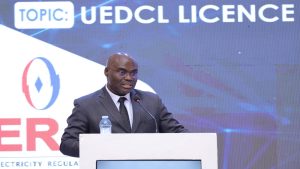Share
During the commissioning, President Museveni emphasized several historical facts about Uganda’s energy sector, as well as the account of how West Nile was connected to the national grid.
“The argument by some people who say that we had forgotten West Nile were wrong, they were not serious, they were disruptive actually,” stated Uganda’s president.
“When the NRM took office, Uganda’s only installed power source was Owen Falls Dam, which had a generation capacity of 150 megawatts and only four turbines (15 megawatts each) operating out of ten. Uganda had a total of 60 Megawatts. And under contract, we had to supply 30 megawatts to Kenya. This was a long-standing agreement between the Kenyan and Ugandan colonies. Consequently, the actual power in Uganda was 30 Megawatts,” he added.
President Museveni noted that after coming to office, the NRM government sought ways to increase the country’s power supply.
“The first thing we did was rebuild Owen Falls Dam to 150 megawatts and fine-tune the generators to add another 30 megawatts, bringing the total to 180 megawatts. We sold 30 megawatts to Kenya and kept 150 megawatts for Uganda.
The President did, however, express unhappiness with former Members of Parliament who thwarted his efforts to generate inexpensive electricity for Ugandans.

“I fought very hard to get an American organization to develop Bujagali on a private basis, and we agreed that they would sell power for 4.9 cents per unit. When we brought it to Parliament, they blocked it. Actually, you should find out who these people were (MPs) who opposed the idea because we cannot continue like this. Actually, there are occasions when I feel compelled to return to the jungle and cause some damage to anything.”
President Museveni also indicated that during the 2006 general elections, he directed the cabinet to concentrate infrastructure development, with a particular emphasis on power and roads. According to him, this directive had a significant impact on the country’s progress.
“That’s when we set up the energy fund and invested money in it. That energy fund liberated us because it gave us the freedom to act. Because of the energy fund, I began discussions with the Chinese about building Karuma and Isimba. We had planned to pay for everything out of our own pocket, but the Chinese Ambassador who was here stated the Exim Bank of China could provide financing. That is how we ended up developing 183 Megawatt Isimba, 650 Megawatt Karuma, and so on.”
“Now, in the interim, my great people went behind my back; that group is also present. They signed a new Bujagali deal without my knowledge, removing the 4.9 cent agreement I had established with the American corporation, and I later learned that they had begun building Bujagali. I didn’t know the facts; I assumed they had the same terms, so what is the price when Bujagali is finished? Sixteen cents.”
President Museveni, on the other hand, stated that the new power connection will allow the government to attract more investors interested in establishing companies in West Nile.
“There’s a lot of power ready to be utilized. “What I would recommend is the development of an industrial park somewhere in the West Nile near the power plant,” the President stated.
Hon. Ruth Nankabirwa, Minister of Energy and Mineral Development, expressed her satisfaction that the West Nile sub-region had finally been connected to the national grid.

“I and my team took a decision to prioritise the connection of the West Nile region to the National grid amidst the many challenges and pressures that we have,” she wrote.
The Minister also praised President Museveni for his consistent leadership that has resulted in peace, security, and prosperity.
“You invested in the country’s stability by working on infrastructure such as roads, transportation, and power, beginning with generation. You cannot supply what you do not possess. You have raised funds, and new power plants and transmission lines have been built,” Hon. Nankabirwa observed.
The Ministry of Energy, through its implementing agency, UETCL, states that it is committed to executing Vision 2040 and National Development Plan III by completing different power transmission projects that would assure statewide access to the national grid.
The Vice President, H.E Jessica Alupo, the Minister of State in-charge of Minerals, Hon. Phiona Nyamutoro, the Minister of State for Northern Uganda Affairs, Dr. Kenneth Omona, and Mr. Kwame Ejalu, Chairman of the UETCL Board, were also in attendance.










